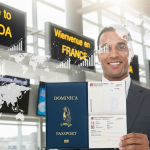Market Analysis and Opportunities
The United Arab Emirates, particularly Dubai, stands at the crossroads of East and West, with an economy driven by diverse trade, international business, and a vibrant multicultural workforce. In this dynamic setting, the demand for professional language services—especially via a freelance translation platform—has surged due to Dubai’s role as a global business hub, a centre for tourism, and a destination for multinational conferences and events.
According to the Dubai Chamber of Commerce, the UAE is home to more than 200 nationalities, and almost 90% of the population comprises expatriates. Business in Dubai frequently requires translation and localization services for legal documents, marketing materials, e-commerce content, and government communications. Furthermore, the UAE government’s focus on digital transformation has increased the demand for scalable, technology-driven translation platforms that support instant access to diverse linguistic expertise.
Target Market Analysis
- Market Size and Growth: The global language services market surpassed USD 60 billion in 2023, with the Middle East and GCC contributing over USD 2 billion. The UAE translation sector is expected to grow at a CAGR of 6-8% through 2027, fueled by international trade, digital transformation, and expanding e-commerce.
- Key Trends: Increasing digital content, the proliferation of e-government services, tourism revival, and broadening market participation by SMEs and startups are pushing demand for cost-efficient, tech-enabled freelance translation platforms.
- Consumer Preferences: Businesses and individuals are prioritizing fast turnaround, certified translations, and multi-lingual support—especially for Arabic, English, Russian, French, Mandarin, Hindi, and Farsi.
Marketing Needs and Tactics
- Market Research: Regularly analyze segments such as legal, medical, real estate, and tech, as these sectors have significant translation requirements in Dubai.
- Digital Campaigns: Leverage targeted SEO and PPC to capture search volume for “translation services in Dubai,” “certified translators in UAE,” and “multilingual business support.”
- Social Media & Branding: Build visibility on LinkedIn, Instagram, and Facebook. Establish thought leadership via blogs on language trends, tech advancements, and business case studies (see the Persian Horizon blog for best practices).
Expansion Potential
- Regional Scalability: Explore GCC markets such as Saudi Arabia and Qatar by extending language offerings and compliance expertise.
- B2B & B2C Diversification: Build corporate packages for business clients while expanding on-demand translation for tourists, students, and residents.
- Export Markets: Use Dubai’s global connectivity to support multinational companies entering other emerging or mature markets.
Comprehensive Business Overview
A Freelance translation platform in Dubai is a digital marketplace connecting businesses and individuals with vetted freelance translators for written, audio, and video content.
- Industry: Linguistic services, digital platforms, gig economy.
- Business Model: Commission-based (transaction fees), subscription packages for businesses, or pay-per-project options.
- Target Audience: SMBs, corporates, law firms, event companies, government agencies, and expatriates.
- Operational Scope: Operating mainly online, with regional specialization in Dubai and the wider UAE, and a vision for GCC expansion.
Mission, Vision, and Core Objectives
- Mission: To democratize access to high-quality, fast, and affordable translation services in the UAE by leveraging freelance talent and advanced technology.
- Vision: To become the leading freelance translation platform connecting cultures and businesses across the GCC and beyond.
- Objectives: Build a robust network of multilingual translators, ensure compliance with UAE regulations, and continuously innovate via AI and automation.
Business Stage and Location
- Stage: Early growth, with proof of concept and client traction.
- Location: Dubai Free Zone (for 100% foreign ownership, tax advantages, and strategic access to regional markets).
Competitive Advantage
Unique Value Proposition (UVP)
- Entrepreneur: Low-entry barriers compared to traditional agencies, scalable with minimal physical infrastructure, access to a vast, skilled freelance workforce.
- Investor: Rapidly growing demand, recurring revenue through subscriptions, potential for AI integration, attractive profit margins (20-30% typical for digital marketplaces).
- Manager: Lean operations, easy-to-scale digital platform, robust analytics for performance monitoring, automation via CRM and communication tools.
Supporting Evidence
- Integration of AI-powered quality control boosts efficiency and reduces operational costs.
- Exclusive contracts with certified translators specializing in legal and medical documents—a significant demand sector in Dubai.
- Ability to launch with outsourced tech infrastructure, speeding up go-to-market timelines.
Financial and Investment Needs
Financial Requirements
- Startup Costs: AED 300,000–500,000, including tech development (AED 150,000–250,000), marketing (AED 50,000–100,000), and regulatory/licensing (AED 30,000–70,000, variable by Free Zone).
- Operational Costs: Monthly costs for IT support, customer service, payments platform, and marketing: AED 15,000–30,000.
- R&D: Allocate AED 50,000–100,000 for AI, platform upgrades, and new verticals.
Investment Potential
- Attractive ROI potential (30%+ for lean, digital-first models with recurring revenue streams).
- High scalability with minimal additional capital investments for market entry in other GCC countries.
- Suitable for equity investors, angel investors, or venture capital focused on technology and service industries (Persian Horizon’s investment consulting can assist in structuring deals).
Financial Risks & Mitigation
- Risks: Intense price competition, talent churn, or economic slowdowns.
- Mitigation: Diversified service portfolio (certifications, urgent jobs), tiered pricing, freelancer loyalty programs, and legal risk coverage (e.g., insurance, performance contracts).
Human Resources and Recruitment
Workforce Needs
- Critical hires: 1-2 platform managers, 2-3 customer service specialists, 1 IT lead, 1 marketing manager.
- Network of 50-100 freelance translators, focused on core language pairs, with options to scale up via the platform.
- Expertise: Proficiency in Arabic/English, sector-specific translation (legal, medical, technical), and digital marketing skills.
HR Challenges and Strategies
- Talent competition is high in the UAE; attractive packages, performance-based bonuses, and flexible work arrangements are key.
- Continuous upskilling: Create partnerships with local universities or professional institutions for translator training.
- Retention: Foster an inclusive, transparent culture—key for freelancers seeking reliable, steady work.
Compliance with UAE Labor Laws
- Ensure all contracts (permanent and freelance) comply with UAE labor regulations, including clear terms, end-of-service benefits, and visa sponsorship if needed.
- Leverage Free Zone entities for simplified labor laws, lower quotas for nationalization, and streamlined onboarding (expert setup services can help).
Infrastructure and Operations
Infrastructure Needs
- Tech stack: Secure, scalable cloud hosting, AI translation memory integration, and encrypted payment gateways.
- Physical office: Optional, but a Dubai-based address is important for credibility; cost-effective options include Free Zone Flexi-desks or co-working hubs.
- Hardware: Laptops, VoIP, and standardized office productivity suites.
Operational Optimization
- Process automation for freelancer onboarding, QA, invoicing, and customer support is critical to reducing manual workload.
- Weaknesses: Potential bottlenecks in freelancer allocation for urgent requests—invest in automated job-matching algorithms.
- Action: Use an ERP or CRM to centralize data and streamline communication.
Legal Compliance
- Register with the appropriate Free Zone or DED authority, secure a translation license, and open a corporate bank account in a UAE bank.
- Ensure up-to-date documentation for VAT (if turnover exceeds AED 375,000), GDPR-style data compliance, and platform terms of use.
Innovation and Technology
- AI-powered translation engines (post-editing by humans), live chatbots, and self-service portals for clients.
- Use analytics for translator performance, NPS scoring, and business intelligence dashboards to guide decisions.
- Stay ahead by adopting voice-to-text, context-aware translation, and collaboration with machine learning providers.
Marketing and Branding Strategies
Brand Status and Perception
- Focus on building authority—ensure a clean, professional visual identity with multilingual UX optimized for mobile devices.
- Highlight strengths: Team certifications, case studies, and testimonials to foster trust.
- Improvement: Launch multi-language knowledge centers and a blog featuring SEO-optimized content on translation trends in the GCC.
Marketing Channels and Optimization
- Digital: Prioritize SEO (targeting terms like “business in Dubai,” “translation platform UAE”), LinkedIn thought leadership, and Google Ads.
- Traditional: Attend trade shows, academic events, and government forums for networking and credibility.
- Develop partnerships with relocation agencies, law firms, and marketing agencies for referral business (sales and advertising expertise can amplify campaigns).
360-Degree Campaigns
- Combine digital and offline: launch flash discounts for trade shows, host webinars for business clients, and promote real-time translation demos via social media.
- Examples: LinkedIn campaigns for B2B leads, Instagram stories showcasing success stories, and email newsletters with language tips for SMEs.
Growth and Development Potential
Growth Strategies
- Enter new verticals (e.g., remote interpreting for virtual conferences, voiceover for media).
- Forge partnerships with government e-service providers and business councils.
- Offer tiered pricing, memberships, and loyalty programs to drive user stickiness.
Networking
- Strengthen ties with Free Zone authorities, translation associations, and chambers of commerce.
- Leverage multinational supplier networks—Dubai’s status as a trade and logistics hub is a conduit to 50+ markets.
- Explore networks such as Persian Horizon for connections spanning 57 countries.
International Potential
- Dubai’s connectivity, visa-friendly regimes, and support for digital nomads make it an ideal base for international expansion.
- Ability to offer translation for export compliance, international contracts, and localization projects suited for Africa, Asia, and Europe.
Sustainability and Innovation
- Adopt eco-friendly digital workflows to reduce paper, travel, and office waste.
- Support the Dubai Vision 2030 by embracing digitalization, nurturing tech talent, and participating in local accelerators.
Alignment with Dubai’s Market
Cultural and Legal Alignment
- Multilingual support (Arabic, English, Hindi, Chinese, Farsi, Russian) reflects Dubai’s cosmopolitan profile.
- Customized UX, calendar systems, and payment portals tailored for local usage patterns.
Regulatory Compliance
- Observe all UAE commercial, labor, and tax laws, including regularized contracts and timely VAT registration.
- Fill any compliance gaps with professional legal checks and continuous education (see business sales support for company structuring).
Advantages of Dubai
- Leverage a tax-free environment, premium infrastructure, and a “digital first” government.
- Capitalize on Dubai’s time zone overlap with Europe, Africa, and Asia to offer extended operational hours.
- Tap into government incentives for digital startups and SMEs, including startup grants and accelerator programs.
Local Challenges and Solutions
- High Competition: Counter with niche specialization (e.g., legal, medical translation), and AI-enhanced efficiency.
- Operational Costs: Utilize Free Zones, remote work, and subscription-based tools to keep overheads low.
- Talent Recruitment: Source multilingual freelancers from global pools, not just locally, to broaden expertise, while adhering to UAE regulations.
Conclusion
Dubai’s unique multicultural environment, robust digital infrastructure, and business-friendly policies make it an exceptional location for launching and scaling a freelance translation platform. The rising demand for language services—fueled by globalization, e-government initiatives, and increasing expat communities—presents a scalable, high-margin business opportunity.
Stakeholders should capitalize on Dubai’s Free Zones for cost savings, adopt advanced technology for operational efficiency, and invest strategically in marketing to enhance brand presence. By building a diverse freelancer network and focusing on compliance, the business can mitigate risks while unlocking tremendous growth—both regionally and internationally.
If you’re ready to launch or expand your freelance translation platform, or need expert support for investment in Dubai, explore the comprehensive business setup and advisory services at Persian Horizon. Position your venture for long-term success in Dubai’s thriving market.








